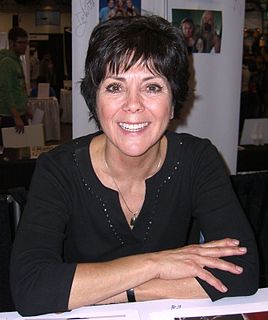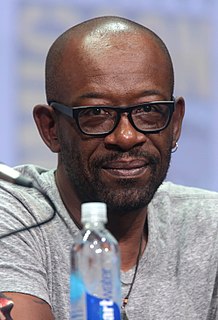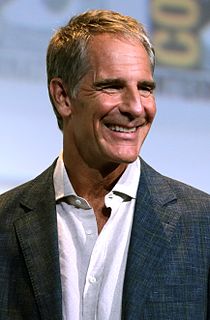A Quote by Jenna Elfman
And as a character, what I found very inspiring about playing Dharma, especially at that time, is that the women on television were more neurotic than they were free. And I thought, this is a rare bird and this is unique on television and I think it's really refreshing.
Related Quotes
When I first started making films 30 years ago, people would comment that I was a woman. But strangely, when I was in television, no one ever mentioned that I was a woman. Maybe it was because television and film were different. There were more women working in television than men. There was no split in terms of work - everyone was considered equal
If I were beginning my career today, I don't think I would take the same direction. Television is at a crossroads at the moment. And although I am not up to date technologically, I suspect that somewhere out there people are conveying things about natural history by means other than television, and I think if I were beginning today, I'd be there.
Television in the 1960s & 70s had just as much dross and the programmes were a lot more tediously patronising than they are now. Memory truncates occasional gems into a glittering skein of brilliance. More television, more channels means more good television and, of course, more bad. The same equation applies to publishing, film and, I expect, sumo wrestling.
I'm very conditioned by my surroundings, by the influences of social media, by the television I watch. And I always found, growing up, that even inspiring female characters or complex female characters in television and film, I often found that their complexity was actually just another facet of their sexuality.
Well, I don't know anything about television. I'd never done it before. Initially, it was quite daunting to take on so much challenge and so much time with it. I think it is a great outlet for an actress because you really have 13 hours to bring a character to life, which is so much more than with film, and you have the luxury of time to tell a story and to really color a character.
You could do much more in movies than you could on TV, and even movies were heavily censored. But in television, the areas of timorousness were fairly laid out. Race relations. Sex. Politics. There was a whole conglomeration of taboo themes. And even to date, though television has become a much freer medium, it's still far less free, far less creatively untrammeled than are the movies. They're infinitely more adult in that respect.
In the '60s and '70s it was a great period for American films because studios were still run by individuals who worked off the seat of their pants and went along with things. At that time, they were very uncertain about what to make because of the influence of television. A lot of really terrific movies were made. But then the studios gradually became more corporate and were owned by corporations and run in that way and now they're very nervous. You see what they make - sequels, franchises and try not to take risks.
I learned a lot from Dick Wolf. I'll always remember playing that character because it was such a good character. It was great to be able to be a character like that for television. I think the thing that I'll bring from the whole experience, the whole 10 years, is I had never been interested in the television business before.
My father did think I should get interested in television. But I had very little interest in television and it wasn't something I wanted to do. I really never thought about going to work on big feature films in Hollywood. But when we made The Householder, Columbia Pictures bought it. Who would have ever imagined?




































